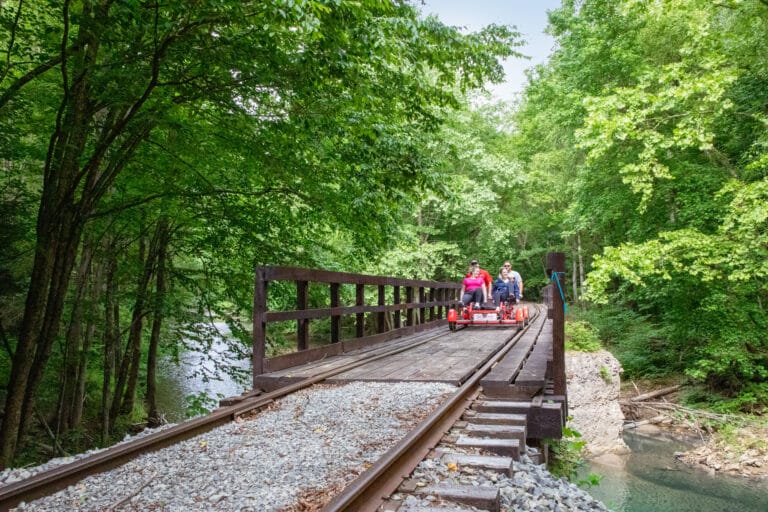Listen here, King Coal.
Maria “Mother” Gunnoe, a fearless community organizer for the Ohio Valley Environmental Coalition in West Virginia, whose home sits on the frontlines of an atrocious mountaintop removal operation in Boone County, has just been awarded the prestigious Goldman Prize. Considered the “Nobel prize for the environment,” the award recognizes a grassroots leader on each continent and their extraordinary actions to protect the natural world and human rights.
Gunnoe is the second anti-mountaintop removal activist in Appalachia to win the Goldman Prize in the last six years: West Virginian Judy Bonds was recognized in 2003 for her work against devastating strip mining operations in the Coal River Mountain area.
Since 1997, when Gunnoe served as a volunteer on underground mine fires and air quality issues, the West Virginia and Cherokee native has been one of the most vocal advocates for justice in the Appalachian coalfields. Refusing to back down to numerous threats from King Coal thugs or leave her ancestral land, she has emerged as an inspiring heroine in the coalfields for the rest of the nation. In 2000, her house and orchards along the hills of her grandfather’s homeplace became the frontlines for a mountaintop removal operation that would eventually lead to wide scale erosion, flooding and water contamination.
Gunnoe’s home has been flooded seven times in the last eight years.
She writes: “The mountains are slipping into the hollow and in turn, it’s washing by me, and [it’s] flooding the people across from me. Everyone downstream from where that mountaintop removal site is gets flooded and their wells are contaminated. My well is contaminated. Can’t drink my water. I buy on average about $250 worth of water a month, and that’s on a slow month.”
Since President Jimmy Carter signed the Surface Mining Control and Reclamation Act in 1977, which shamefully recognized mountaintop removal as an approved mining technique, over 500 mountains have been clear cut and blown to bits in Appalachia, and an estimated 1,200 miles of streams have been jammed with mining waste.
A frequent speaker around the nation, and a mother of two teens, Gunnoe has also pointed to the issue of human rights violations from mountaintop removal.
In the essay collection, Like Walking onto Another Planet, she wrote: “People around here are swiggin’ down contaminated water all day long, every day. The health affects are sometimes long-term. It’s usually pancreatic cancer or some kind of liver disease, or kidney stones, gall stones – digestive tract problems. And then, too, people’s breathing. The blasting is killin’ people – just smotherin’ them to death through breathin’ all of the dust. The computers and electronics and stuff in my house stay completely packed up with black coal dirt and rock dust together. Why do they expect us to just take this? It’s not gonna happen down at the state capital. I mean they’re not gonna go up there and blast off the top of a mountain in the background of the Capitol.”
–by Jeff Biggers, author of The United States of Appalachia








